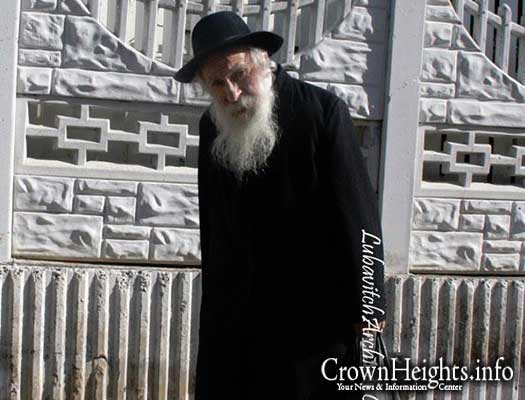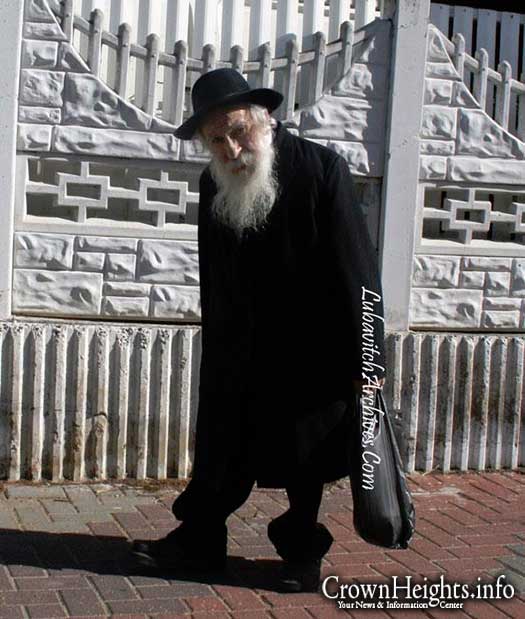
Remembering Reb Avraham Roitblatt, 89, OBM
Avraham Roitblatt, the son of Rabbi Yeshuah Asher Roitblatt, the pre-war leader of the Shedlitz Hassidic dynasty, was born in 1924 in the Polish city of Siedlce.
During his childhood he basked in the holiness of his parents’ home, where he merited living with a pious Hassidic leader who was known as a “wondrous man.”
When WWII broke out, their home served a haven for many immigrants running from other towns and cities close to the border.
When the Germans entered their city during the season of the High Holidays 1939, many came to the Hassidic leader and asked him what to do. He said that at night after the saying of Psalms he would tell the community what to do.
At that time he walked to the center of the synagogue and told those gathered, “the Germans came to destroy, to kill and annihilate. Those that could flee should do so. I cannot promise that all will survive, but exile atones.”
His family crossed the border to Russia and the Soviets transferred all the immigrants to camps deep in Siberia, where the family lived in horrendous conditions for several months. “We kept all the Jewish holidays,” he would later recall, describing the self-sacrifice to do so, “one time giving up a warm blanket, a prized possession, to be able to purchase potatoes for the holiday of Passover,” when the rationed bread would be prohibited to consume.
When the war ended the family began traveling to Turkmenistan, which was under communist rule, and on the way both of his parents tragically died.
When he arrived in Turkmenistan, a woman who would travel often to Samarkand, Uzbekistan, asked him what he is doing in here, when there is a place to study in one of the Chabad-Lubavitch clandestine Yeshivah schools in Samarkand. He relocated there and for two years he learned there.
He later joined the many who with false papers left Russia after the Holocaust.
Once out of Russia, he studied at the Chabad school in Brunoy, France, and from there he was one of the first residents of the Israeli village of Kfar Chabad.
He was a quite man, who lived a modest life, never boasting or announcing his personal heritage of a scion of a Hassidic dynasty. For many years he served as the postman for Kfar Chabad and would deliver the mail. He was also a teacher and was beloved amongst his students. It is said that he never raised his voice, or chastised any child, he looked at the best in the children in his care and made an effort to highlight the good.
Although he had a lot to say, he always blended into the crowd and listened intently to what others had to say. During his last years he suffered from his health, yet he never complained.
“He suffered greatly,” says his nephew Rabbi Mordechai Dovid Unger, the leader of the Bobov Hassidic community in the Borough Park neighborhood in Brooklyn, NY, “yet you never saw a trace of it on his face, you always saw the smile and pleasant greeting.”
He says that our generation needs to learn from someone, “for so many years he lived in a community, never stood out of the crowd, despite his refined character and lineage and yet never displayed any arrogance.”
He passed away last month at the age of 89.
(Based on an interview with Hamevaser and Rabbi Unger’s interview with Kfar Chabad Magazine.)















What a man!
we truly should all learn from him..
Mordechai Graeber
My grandmother’s maiden name was Roitblatt from Poland. I once had a brief conversation with Rabbi Roitblatt from Crown Heights.
I am eager to gain more information about the Roitblatt family and would love to me members of the family. if you have more info, it would be appreciated.
y
thanks for posting